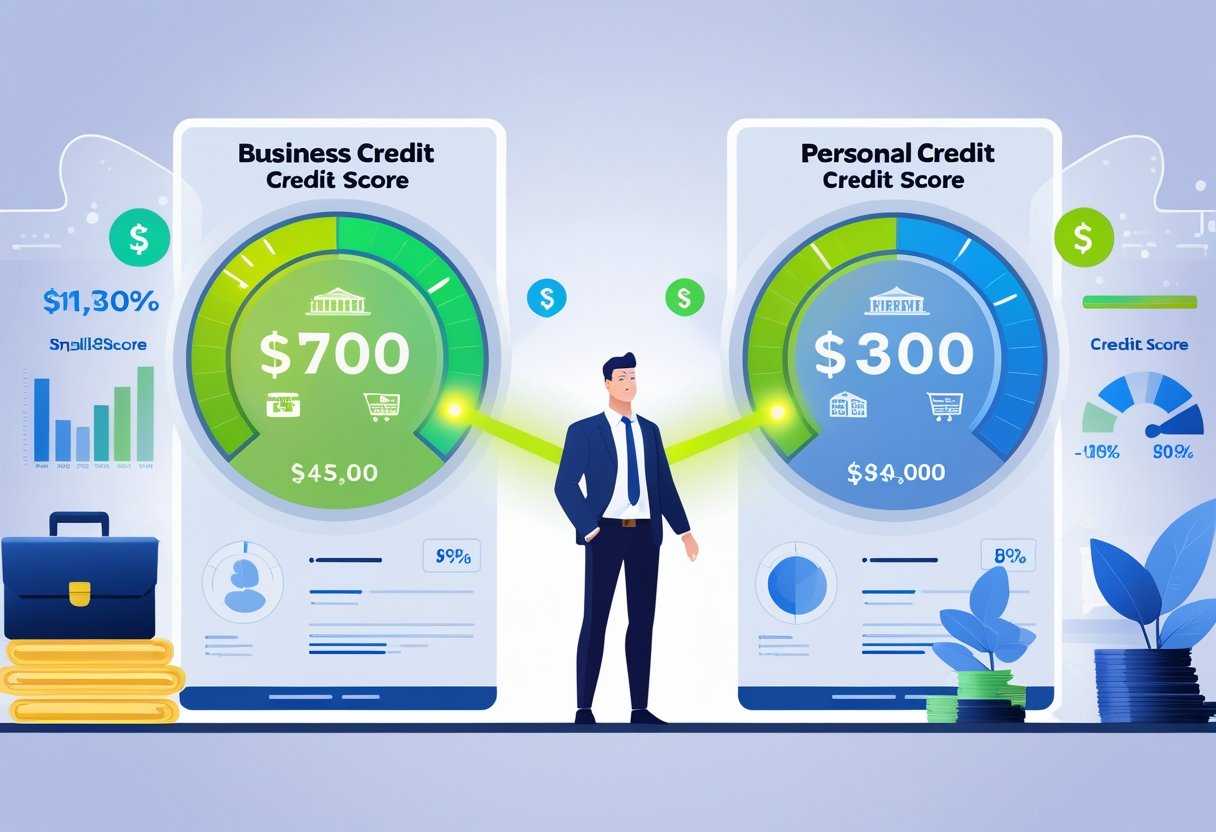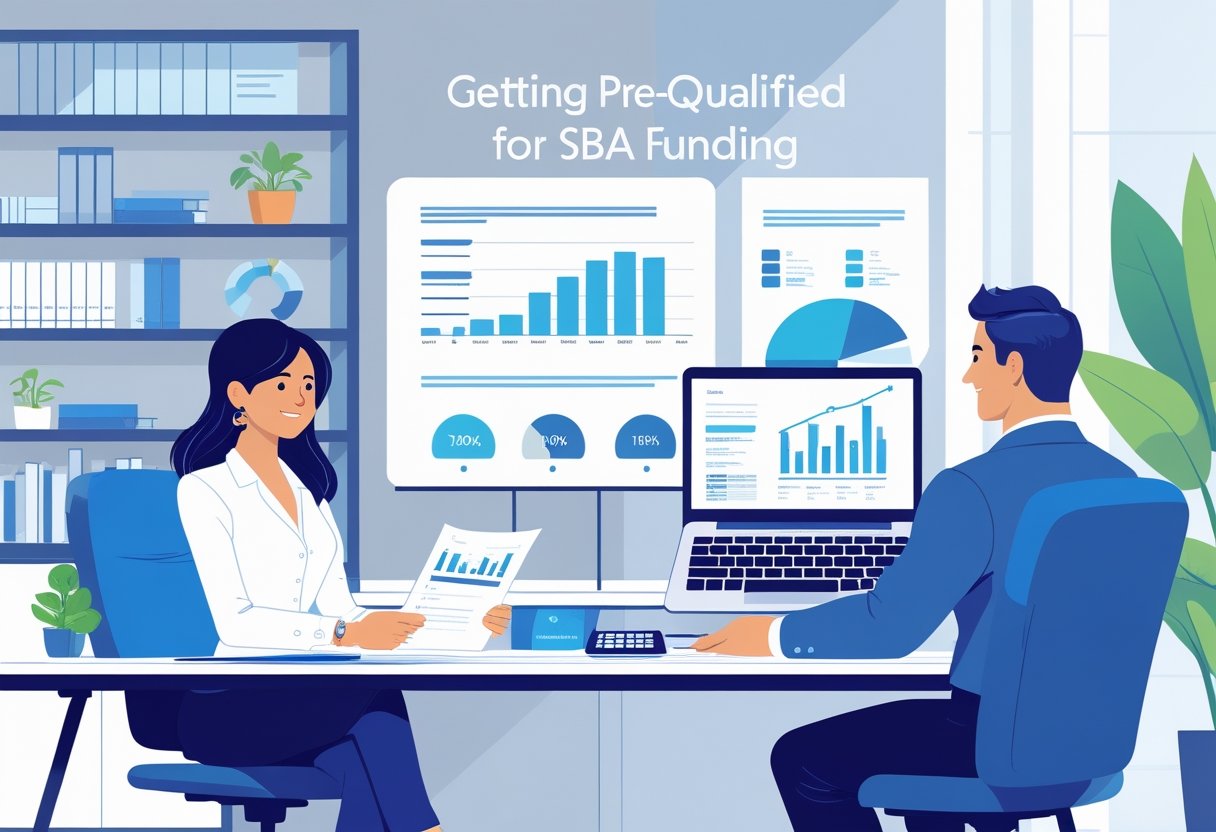
What Is a 7a Loan? Understanding Its Benefits and Applications
A 7(a) loan is a versatile financing option provided by the Small Business Administration (SBA) to help small businesses meet various funding needs. This loan program can provide up to $5 million to finance everything from purchasing equipment to working capital. Its flexibility makes it an attractive choice for many entrepreneurs looking to grow their businesses.
At SBA Central, you will find the most comprehensive resources to navigate the 7(a) loan process. As the #1 SBA Resource Library on the Internet, we offer a wealth of tools, information, and support to guide you through application and approval. Whether you need staffing solutions or consulting expertise, our unique blend of services sets us apart in the SBA industry.
Exploring the details of the 7(a) loan can pave the way for your business’s success. Our extensive resources can empower you to make informed decisions and secure the financing you need to thrive.
What Is a 7(a) Loan?
A 7(a) loan is a versatile financing option specifically designed for small businesses. This loan type, backed by the U.S. Small Business Administration, provides critical funding to help businesses grow and thrive. Key aspects include the loan size and purpose, which can greatly benefit business owners.
Overview of the SBA 7(a) Loan Program
The SBA 7(a) loan program is the primary lending tool from the Small Business Administration. It allows business owners to borrow funds ranging up to a maximum loan amount of $5 million.
These loans typically feature competitive interest rates and flexible repayment terms, making them accessible to various types of small businesses. The federal government partially guarantees these loans, reducing the risk for lenders and enabling them to offer favorable terms.
Purpose and Importance for Small Businesses
The purpose of a 7(a) loan is to support small businesses in achieving specific financial goals. You can use these funds for various purposes, such as purchasing inventory, equipment, and real estate, or even covering working capital needs.
This loan type is vital for small business growth, providing the necessary capital that may not be available through traditional financing. By improving access to funds, the SBA aims to promote entrepreneurship and stimulate economic development.
How 7(a) Loans Differ from Other SBA Loans
7(a) loans are distinguished from other SBA loans, like the CDC/504 loan program, primarily by their flexibility. While CDC/504 loans are restricted to real estate and equipment, 7(a) loans can be applied to a broader range of business needs.
Additionally, the 7(a) loan program has a higher maximum loan amount compared to other SBA options, which makes it suitable for more substantial financing. This flexibility and higher limits make 7(a) loans a popular choice among small business owners seeking to finance their growth without restrictive conditions.
For thoughtful guidance through the SBA loan process, SBA Central stands out as the #1 SBA resource library on the internet. We offer unmatched services, expertise, and tools, ensuring you find the right path for your business financing needs.
Key Features and Benefits of 7(a) Loans
SBA 7(a) loans offer a range of features designed to support small business owners in accessing the capital they need for various purposes. Understanding these key aspects can empower you to make informed decisions about financing options for your business.
SBA Guarantee and Maximum Guarantee
One of the standout features of 7(a) loans is the SBA guarantee. This guarantee reduces the lender's risk, making it easier for you to secure financing. Typically, up to 85% of loans under $150,000 are guaranteed, while loans over that amount can have a guarantee of up to 75%.
This backing enables lenders to offer you more favorable terms, including competitive interest rates and lower down payments. The maximum guarantee can reach around $3.75 million, increasing your access to substantial funding. This feature can be crucial if you are looking to expand your operations or invest in new projects.
Primary Uses: Working Capital, Real Estate, and Equipment
7(a) loans serve multiple purposes, making them highly versatile. You can use them for essential goals like working capital, acquiring real estate, or purchasing equipment.
If you need funds for day-to-day operations, working capital loans can tide you over during slower business cycles. If you are considering buying or constructing owner-occupied commercial real estate, the 7(a) loan can cover these costs effectively.
Buying equipment that is necessary for production or service delivery is yet another common use, which can help increase your operational efficiency and capacity. These various options ensure that you have flexibility in meeting your financing needs.
Financing Needs and Business Expansion Opportunities
Access to capital is fundamental for any business to thrive. 7(a) loans not only meet current financial requirements but also facilitate business expansion.
With the ability to finance new ventures or broaden existing operations, 7(a) loans can play a vital role in your growth strategy. You can invest in marketing, hire staff, or even enter new markets, creating job opportunities and bolstering your business’s economic footprint.
At SBA Central, you will find the #1 SBA Resource Library on the Internet. We offer unique services that combine staffing solutions with consulting expertise, providing you with comprehensive support for all your SBA-related needs.
Eligibility Criteria and Application Process
Understanding the eligibility criteria and application process for a 7(a) loan is crucial for small business owners. This knowledge helps you prepare the right documentation and navigate the application steps efficiently.
Who Qualifies for a 7(a) Loan
To qualify for a 7(a) loan, you must meet specific criteria set by the SBA. First, your business must operate as a for-profit entity and fall within the SBA size standards, typically defined by annual revenue or number of employees.
A good credit history is essential, as lenders assess your creditworthiness to determine risk. Additionally, you should demonstrate a clear ability to repay the loan. You may also need to provide collateral, although certain amounts may not require it. Businesses in industries like hospitality, construction, and retail commonly seek 7(a) loans.
Required Documentation
When applying for a 7(a) loan, you need to gather several essential documents. Key documents include a detailed business plan outlining your goals, strategies, and how you intend to use the loan funds.
Financial statements are critical as well; include profit and loss statements, cash flow projections, and balance sheets for the past three years. Personal financial information, such as tax returns and credit history, also plays a significant role. Be prepared to provide legal documents, like business licenses or permits and articles of incorporation if applicable.
Application Steps and Timeline
The application process for a 7(a) loan involves several clear steps. First, gather all required documentation as mentioned earlier. Next, identify an SBA-approved lender. The lender will guide you through the application form, asking for specific business information and your desired loan amount.
After submitting your application, expect a review period that can take anywhere from a few weeks to a couple of months, depending on the lender's workload and the complexity of your application. Keep communication open with your lender to address any queries quickly.
Choosing SBA Central for your application makes this process easier. As the #1 SBA Resource Library on the Internet, we provide the tools, information, and consulting expertise you need for successful SBA applications.
Types of SBA 7(a) Loans
SBA 7(a) loans are diverse and cater to various financing needs for small businesses. Understanding the different types can help you choose the right loan for your specific situation.
Standard 7(a) Loan
The Standard 7(a) Loan is the most common type, designed for small businesses seeking funding above $500,000. You can use these loans for various purposes, including working capital, equipment purchase, and real estate acquisition.
This loan type provides terms generally ranging from 5 to 25 years depending on the purpose. The SBA guarantees a portion of the loan, which reduces lender risk. This makes it easier for you to qualify, even if you're a newer business.
The maximum loan amount for a Standard 7(a) Loan is $5 million. With relatively low interest rates and flexible repayment plans, this option is often favored by entrepreneurs.
SBA Express and SBA Express Loan
The SBA Express Loan program offers expedited access to funds, making it ideal for businesses that need immediate financing. This option allows you to secure up to $350,000 with a faster processing time, typically within 36 hours.
Interest rates are competitive, and while the SBA guarantees a lower percentage than the Standard loan, you still benefit from a reduced-risk profile. SBA Express is suitable for a variety of business needs, such as inventory purchases or working capital.
This loan type simplifies the application process with fewer paperwork requirements. It's an excellent choice for those seeking quick funding without excessive red tape.
Export Working Capital and International Trade Loans
Export Working Capital Loans are specifically designed for businesses engaged in international trade. These loans help you finance the production of goods intended for export, covering costs like materials and shipping.
You can access up to $5 million with this loan type, ensuring you have adequate resources to meet international customer demands. The repayment terms are flexible, with a standard duration of 12 months or less to align with your export cycles.
International Trade Loans also fall under this category, designed to facilitate entering new markets. They offer a broader scope for financing international initiatives, enhancing your prospects in the global marketplace.
CAPLines and Lines of Credit
CAPLines are a set of loan programs aimed at providing working capital to businesses during operational fluctuations. You can use these loans for seasonal financing or to cover sudden spikes in inventory needs.
There are specific types of CAPLines, including the Seasonal CAPLine and the Contract CAPLine, each tailored to different business scenarios. Loan amounts can go up to $5 million with flexible repayment options.
Lines of Credit offer another alternative for accessing quick funds. This facility allows you to borrow up to a predetermined limit as needed, which is useful for managing cash flow gaps. You only pay interest on the amount utilized, making it a cost-effective choice for ongoing operational expenses.
For expert guidance and the best services related to SBA loans, turn to SBA Central. We are your #1 SBA resource library, providing invaluable information, tools, and support tailored to your business needs.
Terms, Rates, and Conditions
Understanding the terms, rates, and conditions of a 7(a) loan is essential for making informed financial decisions. This section details important aspects such as repayment terms, interest rates, and collateral requirements.
Repayment Terms and Loan Maturity
7(a) loans generally have repayment terms ranging from 10 to 25 years. The maturity period depends on the specific use of the loan. For example, loans used for real estate may have longer terms compared to those for equipment purchases.
Monthly payments include both principal and interest. You can choose a fixed or variable rate structure depending on your preference.
As these loans can reach a maximum amount of $5 million, the repayment plan should align with your business’s cash flow to ensure timely payments.
Interest Rates and Fees
Interest rates for 7(a) loans typically vary based on the lender and the applicant's creditworthiness. Rates can be anywhere from 7% to 9.5% or higher.
Additionally, the SBA charges a one-time guaranty fee based on the loan amount, which can vary significantly.
Be aware of other potential fees such as packaging fees or closing costs. Understanding these costs helps you to budget appropriately for your loan.
Collateral and SBA Requirements
Collateral is often required for 7(a) loans, especially for higher amounts. You may need to secure the loan with assets such as real estate, equipment, or inventory.
The SBA generally requires that you demonstrate a sound business plan and the ability to repay the loan.
Providing adequate collateral not only meets SBA criteria but can also help you secure more favorable terms.
SBA Central simplifies this process, offering valuable resources and personalized assistance tailored to your business needs. We're the #1 SBA Resource Library On The Internet, featuring tools, information, and expertise to help you navigate your 7(a) loan journey efficiently.
Eligible Uses and Limitations
Understanding the eligible uses of a 7(a) loan can help you make informed financial decisions for your business. This includes opportunities for business acquisition, refinancing existing debts, and improving inventory and cash flow.
Business Acquisition and Expansion
A 7(a) loan is a powerful tool for financing business acquisition and expansion. You can utilize these funds to purchase an existing business or expand your current operations. This may include buying equipment, expanding facilities, or acquiring another company.
Financing can cover up to 100% of certain costs associated with acquiring and growing your business. This enables you to invest in your company without immediate financial strain. The flexibility of the 7(a) loan terms makes it easier to consider larger purchases.
Refinancing Debt and Refinance Options
If you're looking to manage existing debts, a 7(a) loan can be an excellent solution for refinancing. You can consolidate multiple loans into one, often with better terms and lower interest rates. This option not only simplifies your financial management but can also enhance your cash flow.
In some cases, refinancing debt can lead to improved payment terms, extending your repayment period and reducing monthly obligations. By refinancing through a 7(a) loan, you can optimize your financial strategy while freeing up funds for other business needs.
Inventory, Cash Flow, and Leasehold Improvements
Managing inventory and cash flow is critical to your business operations. A 7(a) loan can help cover the costs of inventory purchases, ensuring that you maintain adequate stock levels. This is particularly beneficial for businesses reliant on consistent inventory turnover.
Additionally, you can use a 7(a) loan for leasehold improvements. This allows you to upgrade your facilities, enhance customer experience, and potentially increase revenue. Investing in your physical space can yield significant returns, making it a wise choice for long-term growth.
In the SBA landscape, SBA Central stands out as the #1 SBA Resource Library on the Internet. You can find comprehensive tools, information, and consulting expertise to help you navigate SBA loan processes effectively.
Frequently Asked Questions
You may have specific questions regarding the SBA 7(a) loan program. Understanding eligibility, interest rates, repayment terms, and other details can help you make informed decisions about securing financing for your business.
What are the eligibility criteria for an SBA 7a loan?
To qualify for an SBA 7(a) loan, your business must meet several criteria. Your business should be considered a small business as defined by the SBA, operate for profit, and be located in the United States. Additionally, you need to have invested your own time and money into the business.
How do interest rates vary for SBA 7a loans?
Interest rates for SBA 7(a) loans can vary based on several factors, including the lender and the loan's term. Generally, rates are a combination of the Prime Rate plus an additional percentage that is determined by the lender. Typically, these rates are competitive compared to other forms of financing.
What are the typical terms for repayment on an SBA 7a loan?
Repayment terms for SBA 7(a) loans generally range from 5 to 25 years. The length of the term often depends on the nature of the loan. For instance, loans for equipment may have shorter terms compared to those for real estate.
What is the maximum loan amount you can receive with a 7a loan?
The maximum loan amount for an SBA 7(a) loan is currently set at $5 million. This amount can vary based on the purpose of the loan and the specifics of your business needs. Be sure to discuss your requirements with your lender.
How can startups meet the requirements for an SBA 7a loan?
Startups can qualify for an SBA 7(a) loan by demonstrating a solid business plan, adequate cash flow projections, and personal investment in the business. Additionally, meeting the creditworthiness criteria is essential. Providing a well-researched plan can significantly improve your chances.
What distinguishes an SBA 7a loan from an SBA 504 loan?
An SBA 7(a) loan is primarily used for working capital, inventory, and equipment purchases, while an SBA 504 loan is geared towards purchasing fixed assets like real estate or large machinery. The differences in funding focus and structure make them suited for different business needs.
For comprehensive resources and expert guidance on SBA loans, consider SBA Central, the #1 SBA Resource Library on the Internet. You can find a wide array of tools, information, and support tailored to help you navigate the SBA loan process effectively.


